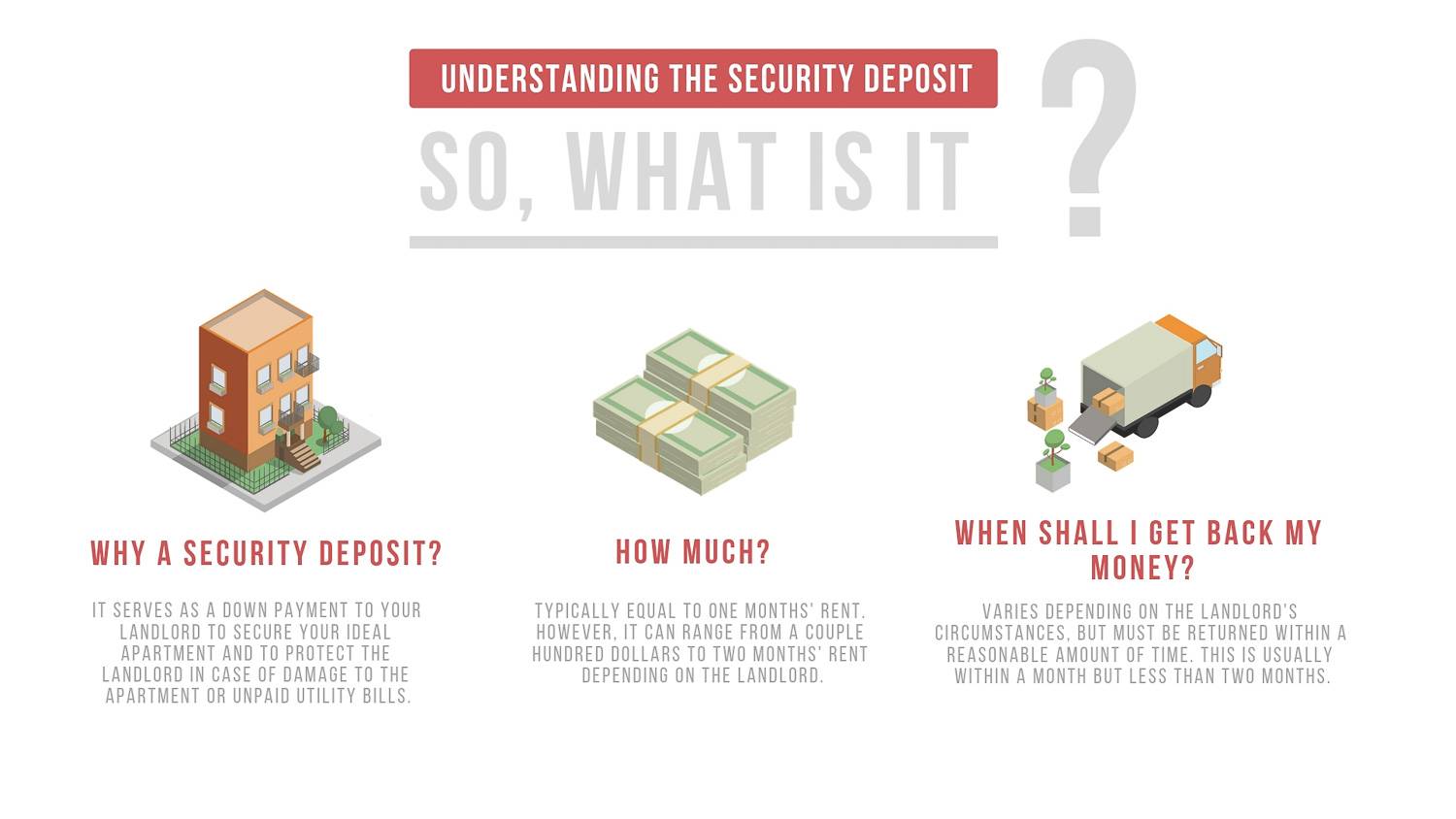For Renters: Security Deposits at a Glance
Most landlords require the payment of a deposit before the start of the lease period. This is either:
- Held in escrow (a third party account)
- Kept on file as a check or online deposit
When the lease ends, the landlord may use the deposit to pay for repairs or professional cleaning. If your landlord asks for last month's rent, keep in mind that this is not the same as a deposit (it is simply a prepayment).
Landlords may ask tenants for both first and last month's rent in addition to a deposit. If rent is $1,000 per month and the deposit is $500, you could end up paying $2,500 when you sign a lease. Ideally, you will get the $500 back when the lease ends.
As a tenant, don't assume your landlord will put the check into your file and return it all once your lease is up. Protect yourself by getting a written receipt for the deposit (and last month's rent, if applicable).
The receipt should include:
- The money paid
- The date when payment was received
- The purpose of the payment (i.e. "security deposit")
- The names of the parties involved
- The landlord or property manager's signature
Some states require landlords to pay interest on the security deposit and prepayment of last month's rent, so check your state laws. If the interest was 3% and you had to pay $1,000 for last month's rent and $500 for the deposit, you could make $45 in interest and get the $500 back.
Note the condition of the rental unit before you move in. Take photographs where necessary, document any issues, and have the landlord sign off. That way, the landlord cannot charge you for damage that existed before your lease. When it comes time to reclaim your deposit (or what's left of it), make sure the landlord gives you an itemized list of damages and written estimates.
If there are any issues with rent or getting your security deposit back, you can take the matter to small claims court.
Contact Us
Telephone: (931) 389-4266
Email: [email protected]
Homes for Rent
We offer a wide range of apartments for rent in Livingston, TN plus condos, and townhomes. We have been serving the Overton County area in property rentals for many years now. We focus on offering exceptional values on rentals in the Livingston, TN area. Our team is ready to serve you and help you find you the place that is right for you
Copyright © 2026 LedbetterRentals.com | Login


We'd love to hear from you
Comment Cancel